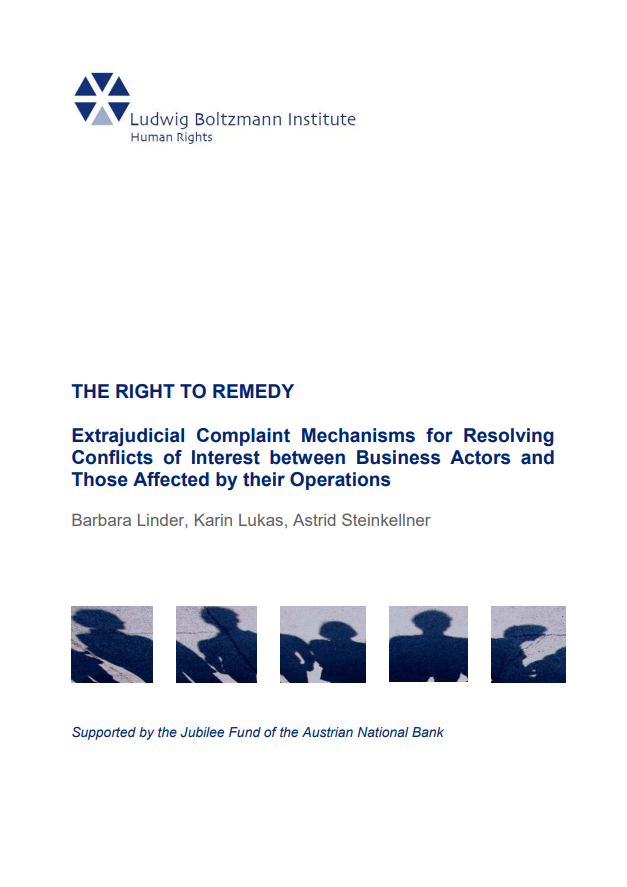The Right to Remedy
Extrajudicial Complaint Mechanisms for Resolving Conflicts of Interest between Business Actors and Those Affected by their Operations
In recent years, companies have faced increasing scrutiny for their human rights conduct. Current international human rights law has been traditionally state-based and provides only dissatisfying ways for potential victims of corporate human rights violations to hold companies accountable. Moreover, judicial proceedings may not be the primary option for both parties involved due to their costs and length as well as the often associated negative public attention. The aim of the study “The Right to Remedy” is to address the current gap in international human rights law and to explore alternative ways of conflict resolution that may provide for more immediate and equitable solutions on an extrajudicial basis. For this purpose, a total of five complaint mechanisms, both international and corporate initiatives, have been examined in order to assess their capacity to strike a fair balance between human rights and business interests. The analysis reveals decisive factors and major challenges for establishing and implementing a human rights compatible extrajudicial grievance mechanism. It has distilled a set of model features that allow for assessing the quality of the mechanism and complement the effectiveness criteria of the UN Guiding Principles.
